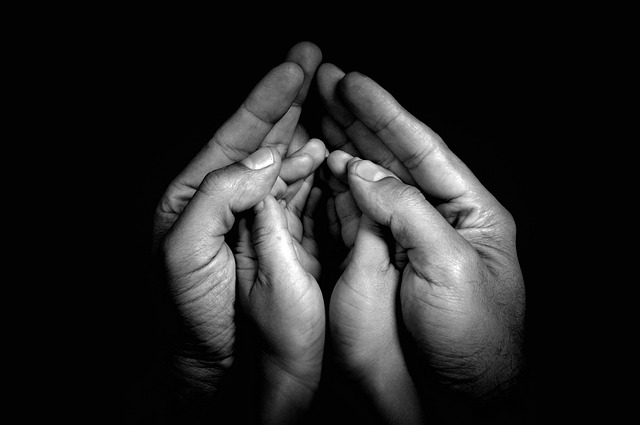Cremation is a widely accepted end-of-life ritual across various religions, each with its unique spiritual and cultural significance. In Hinduism, cremation signifies the soul's release from the physical realm towards moksha, emphasizing purification through fire. Jainism also views cremation as an expression of non-attachment to the material body. Buddhists consider it a step towards breaking the cycle of rebirths and focus on simplicity and meditation. While Islam traditionally prefers burial, Christianity's stance on cremation varies among denominations, with some embracing it as a reverent and sustainable option that aligns with their beliefs. The Catholic Church supports cremation, provided it is done with respect. In Judaism, while historically opposed to cremation due to the belief in physical resurrection, some modern Jewish communities now view it as a dignified and environmentally responsible choice, integrating traditional practices into contemporary cremation services. Each faith honors individual religious beliefs and traditions in the conduct of these services, highlighting the importance of respect and personal wishes in the cremation process. Cremation services are evolving to reflect both spiritual values and ecological considerations, ensuring that they remain meaningful and respectful within each cultural context.
When contemplating the end-of-life choices, cremation services have emerged as a significant aspect of post-death rituals across various cultures and religious traditions. This article delves into how different faiths approach cremation, offering insights into the diverse practices and beliefs that shape this final rite. From the ancient Hindu tradition where fire purifies the soul to modern progressive Christian denominations reevaluating their stance on cremation, we explore the intersections of cremation with religious doctrine and ecological considerations in Buddhism, as well as the historical evolution and contemporary practices within Judaism. Join us as we navigate the multifaceted role of cremation across world religions, acknowledging the respect and dignity afforded to the deceased through these solemn services.
- Cremation Practices Across World Religions: An Overview
- Hinduism and Cremation: The Ritual of Fire and Its Significance
- Buddhism and Cremation: The Middle Way Between Ritual and Ecology
- Christianity and Cremation: Diverse Perspectives from Traditional to Progressive Faiths
- Judaism and Cremation: Historical Evolution and Modern Observances
Cremation Practices Across World Religions: An Overview

Cremation serves as a significant ritual in various religious traditions, reflecting cultural values and beliefs about life, death, and the afterlife. In Hinduism, cremation is an integral part of the funeral rites, symbolizing the release of the soul from the physical body and its journey towards spiritual liberation or moksha. The process is accompanied by specific rituals and mantras, with the ashes often immersed in holy rivers like the Ganges, considered sacred. Similarly, in Jainism, cremation is a revered practice, emphasizing the principle of non-attachment to the physical body.
Buddhism also accepts cremation, viewing it as a means to swiftly release the deceased from the cycle of rebirths and karmic bonds. The cremation services in Buddhist traditions are often conducted with simplicity and without ostentatious rituals, focusing on meditation and merit-making for the departed soul. In contrast, Islam allows cremation but it is not a common practice; most Muslims prefer burial as a form of respect to the body. The Quran does not explicitly prohibit cremation, but it is more aligned with traditional Islamic practices to bury the dead. Cremation in Christianity varies greatly among different denominations; while some Christian traditions view cremation as a valid option, others prefer burial based on cultural or doctrinal beliefs. The Catholic Church, for instance, has lifted its ban on cremation, provided that the remains are treated with dignity and respect, avoiding scattering them in nature or keeping them in an urn at home.
Each of these religious practices reflects a deep-rooted understanding of life’s final journey, with cremation services being conducted in accordance with religious tenets, moral values, and cultural norms. The diversity in cremation rituals across world religions underscores the importance of respecting each tradition’s unique approach to memorializing the deceased.
Hinduism and Cremation: The Ritual of Fire and Its Significance

In Hinduism, cremation is a profound and ancient practice steeped in both cultural and religious significance. The ritual, known as ‘Antyeshti,’ involves the ceremonial immolation of the deceased, which is believed to free the soul from the physical body and prepare it for liberation or moksha. This process is considered an essential step in the journey of the soul, with fire being a purifying agent that aids in the transformation of the physical form into five sacred elements: earth, water, air, ether, and essence. The cremation services in this context are not merely a disposal method but a rite that honors the transition of the individual to a higher spiritual state. The ceremony is typically performed on the banks of sacred rivers or at designated cremation grounds, with specific rituals accompanying the act to ensure the soul’s peaceful passage.
The significance of fire in Hindu cremation services cannot be overstated; it is a key element that aligns with the natural cycle of life and death. The process is conducted with great reverence, with priests officiating the rites and families participating in the ceremonies according to Vedic traditions. The ashes of the deceased are then collected and immersed in a holy river, signifying the final act of liberation for the soul. This holistic approach to the end-of-life ritual underscores the Hindu belief that life is an eternal cycle where death is merely a transition, and cremation services play a central role in this profound spiritual journey.
Buddhism and Cremation: The Middle Way Between Ritual and Ecology

Cremation practices within Buddhism are deeply intertwined with the principles of impermanence and the Middle Way, a fundamental aspect of Buddhist philosophy known as the Dharmachakra. The act of cremation is often seen as a way to expedite the natural process of decomposition, aligning with the Buddhist belief in the transient nature of all phenomena. This approach to the end-of-life rituals not only facilitates a transition that is considered less distressing for the deceased’s loved ones but also resonates with ecological considerations. The reduced land use compared to traditional burials makes cremation an environmentally conscious choice, reflecting Buddhist teachings on minimizing harm and living in harmony with nature. Cremation services that are mindful of this balance between ritualistic significance and environmental stewardship are increasingly being offered by providers who understand the importance of respecting cultural practices while also addressing contemporary ecological concerns. These services often incorporate elements of meditation, reflection, and merit-making to ensure the ceremony honors both the departed and the Buddhist path’s ethical and compassionate tenets.
Christianity and Cremation: Diverse Perspectives from Traditional to Progressive Faiths

Cremation as a post-life ritual has seen a significant shift in acceptance within Christian communities across the globe. Historically, cremation was generally discouraged or forbidden in many traditional Christian denominations due to beliefs centered on bodily resurrection and the sanctity of the body. However, with evolving theological perspectives and a growing appreciation for environmental considerations, attitudes have softened. Today, mainstream denominations such as the Roman Catholic Church, once staunchly against cremation, now permit it without doctrinal repercussions. This change reflects a broader acceptance of cremation services within the faith, acknowledging that the immortality of the soul transcends the physical form. Progressive Christian thinkers argue that respect for the deceased and honoring their wishes are paramount, further supporting the choice of cremation as a dignified farewell.
In contrast, some conservative Christian groups continue to adhere to traditional stances against cremation, citing biblical passages that emphasize the importance of the body in understanding the resurrection and eternal life. Despite these differing views, what remains clear across all Christian perspectives is the focus on grieving, remembrance, and the spiritual journey of the deceased. Cremation services within these communities are often accompanied by religious rituals that uphold Christian values, ensuring that the act of cremation does not overshadow the commemoration of the individual’s life and faith. The diversity of Christian thought on cremation underscores the importance of respecting each community’s unique beliefs and practices when providing cremation services.
Judaism and Cremation: Historical Evolution and Modern Observances

Throughout history, Judaism’s stance on cremation has undergone significant shifts, reflecting both cultural changes and theological interpretations. Traditionally, Jewish law, or Halacha, has been largely against cremation due to the importance placed on bodily integrity and the belief in a future resurrection of the body. This tradition stems from the Biblical commandment to bury the dead, as cremation was seen as a desecration of the deceased’s remains. However, with the evolution of end-of-life practices and the rise of secular influences, some Jewish communities have reevaluated this position. In modern times, while cremation is not universally accepted within all Jewish sects, it has become a viable option for many, particularly among Reform and Conservative Jews, who view cremation as a respectful means of disposal that aligns with the values of dignity and environmental consciousness. Cremation services have thus become increasingly accommodating to Jewish customs, offering rituals that precede the cremation process, such as Taharah, or ritual washing and preparation, followed by a memorial service that maintains traditional practices while honoring the deceased’s choice for cremation. This contemporary adaptation ensures that the reverence for life and the sanctity of the dead are upheld within the framework of modern cremation services.
Cremation serves as a poignant testament to the diverse beliefs and practices within various religious traditions. From the ancient Hindu rites steeped in spiritual significance to the environmentally conscious choices of Buddhists, from the evolving perspectives in Christianity to the historical yet adaptable practices of Judaism, it is evident that cremation services are a deeply personal decision, often reflecting both individual and communal values. As societal norms continue to shift, understanding the nuances of these traditions becomes increasingly important, fostering respect for cultural heritage while honoring the final wishes of the deceased with dignity and compassion.
